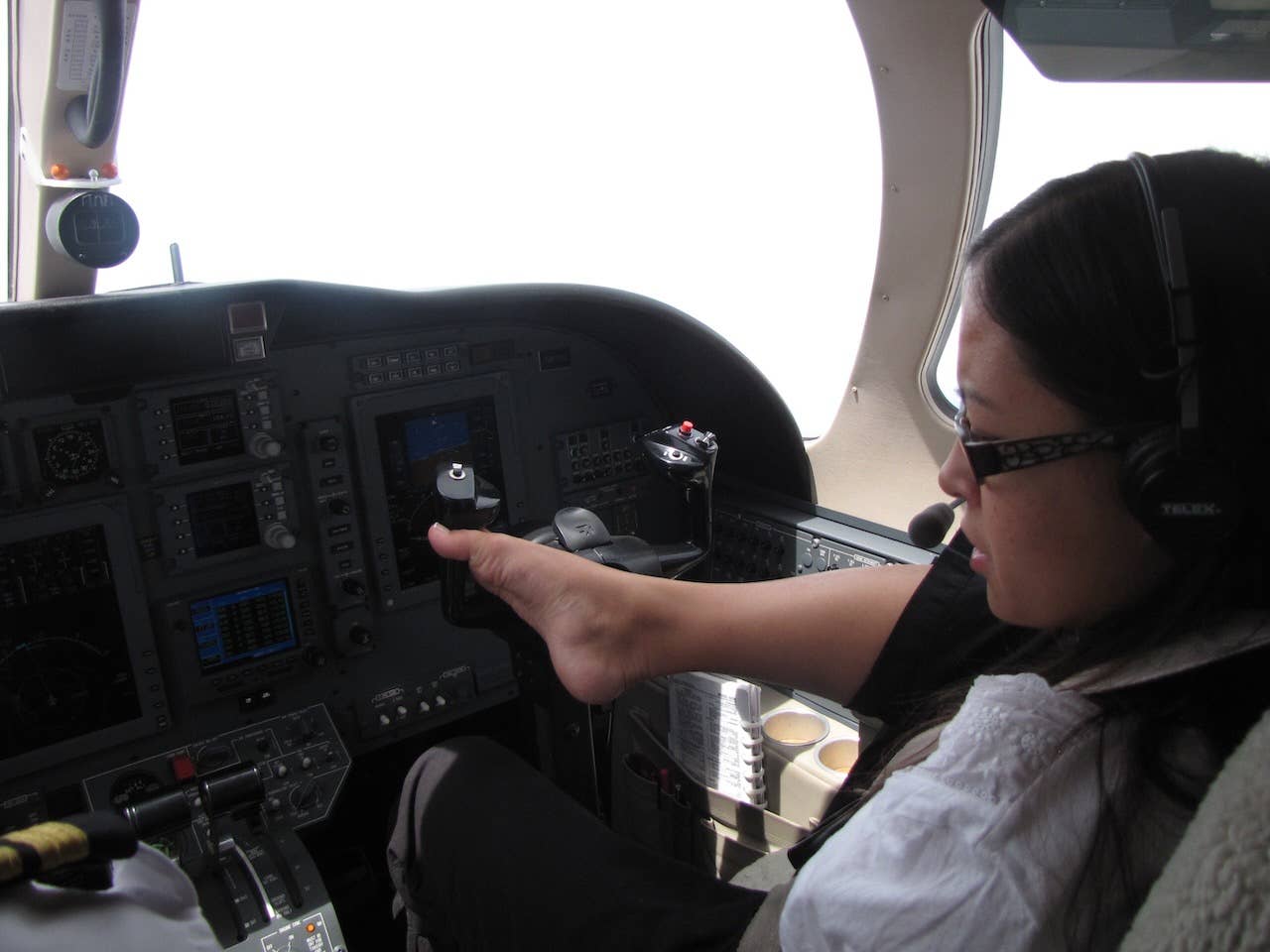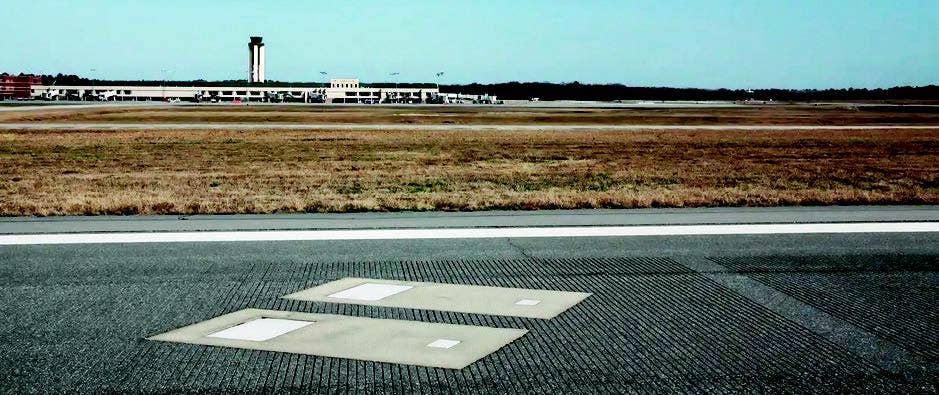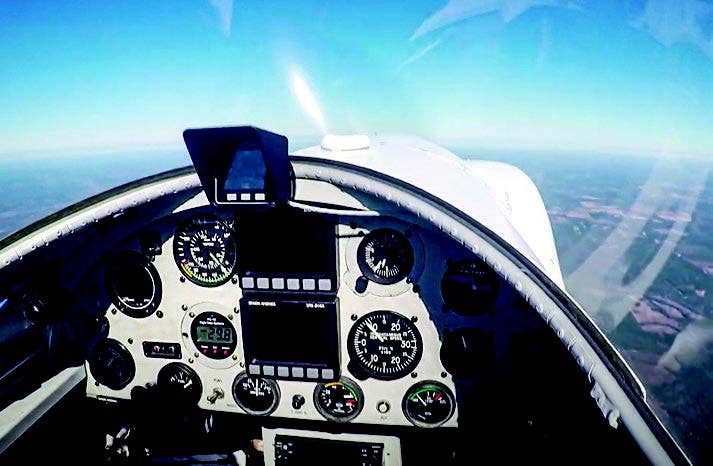Changing the World One Flight at a Time
Opportunities in aviation for people with disabilities are rare in other countries compared to the U.S.

Pilot Jessica Cox, getting a little jet time in her log book on a flight to Guatemala. [Courtesy: Jessica Cox]
"Unable!" That one word is so powerful in aviation. Yet, it's almost a dirty word when I'm out of the airplane. I've learned that the worldview of many people with disabilities has been defined by others with that single word. I wish that wasn't the case.
I got into aviation as a hobby and became a pilot before becoming a multinational motivational speaker. When I started seeing more of the world because of speaking invitations, I realized that general aviation is regarded as a novelty in most countries. People don't just wake up one day and set out to become a pilot.
For some cultures, it would be almost like waking up one day and deciding to go to the moon. Aviation is considered an elite field. Opportunities in this space are rare in other countries compared to the U.S. Particularly when women still represent only a single-digit percentage of certificated pilots. And the opportunities in aviation for people with disabilities? Almost zero.
Pair the rarity of women in aviation with the assumptions about disability present worldwide, and the combination becomes infinitesimal. I understood why my story is so profoundly received—an armless woman achieving the almost impossible by being a pilot.
December 3 was International Disability Day, and I thought about the intersection between disability and my international outreach. Aviation provided such a unique platform for advocating for disability awareness.
I've flown an Ercoupe in Athens, Greece; a Cessna over Manila, Philippines; and a Diamond twin over Addis Ababa, Ethiopia. Each experience has been a unique opportunity to shed light on what is possible for someone with a disability.
Shortly after becoming a pilot, a local pilot and businessman invited me to speak in El Salvador. After having me speak for his company and a local charity for disadvantaged youth, we flew to the neighboring country of Guatemala. While there, he arranged for a private tour of the city.
As I walked the cobbled streets of the historic district, I saw a blend of shops and not a few locals asking for handouts. I was not far behind some other tourists when I walked past a young girl asking for money.
I did a double take when I noticed that she did not have hands but stubs at her wrists. Upon realizing this, I grabbed a five-dollar bill and gave it to her with my foot. I saw her face light up with a smile. I thought about how I could have been in her place if I had been born in a country with fewer opportunities. Instead, I was there in her country, being welcomed as a celebrity for my accomplishments in aviation. What a jarring contrast in our fates. After more than a decade, I remember that moment as if it was yesterday.
That was one of my first trips where I witnessed the disparity in opportunities for people with disabilities between the U.S. and other countries. I have since seen many different manifestations of this gap. Through aviation, I have also had many opportunities to highlight that gap and invite people to work towards eliminating those disparities.
In Athens, Greece, I flew over the coast with an Ercoupe owner to be part of the introduction to a disability film festival to promote awareness. With the help of Handicap International, I flew over the capital city of Ethiopia, Addis Ababa, hoping to encourage inclusion for children with disabilities in school.
When word got out, press people met us at the airport, and a memorable young boy named Tarikou came to meet me. He was only 8 years old but also did not have arms. He and his family lived in such a rural area that he had never even ridden in a car. When he came to the airport, it was the first time he rode in a car and definitely the first time he saw an airplane. He told his mom he wanted to become a pilot just before we parted ways.
When we were lobbying for the International Disability Treaty in the U.S., Senators were willing to meet with me because of the aviation connection. In the Philippines, we made waves showing the importance of supporting people with disabilities after natural disasters. Not long ago, I met the president of Egypt when I spoke to 8,000 young people from around the world in the opening ceremonies of the World Youth Forum.
It makes me wonder what more I can do and what possibilities are just around the corner. The Impossible Airplane is on track for completion in 2025. I hope more doors open when it's finished. If not, at least I'll be able to buzz those closed doors on my way to the next.
I have aviation to thank for opening up these international opportunities. I will continue to use the power of being a pilot to show the world that disability does not mean inability.

Subscribe to Our Newsletter
Get the latest FLYING stories delivered directly to your inbox






